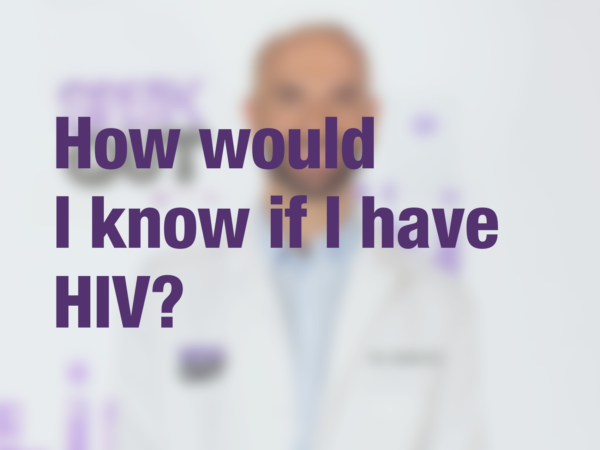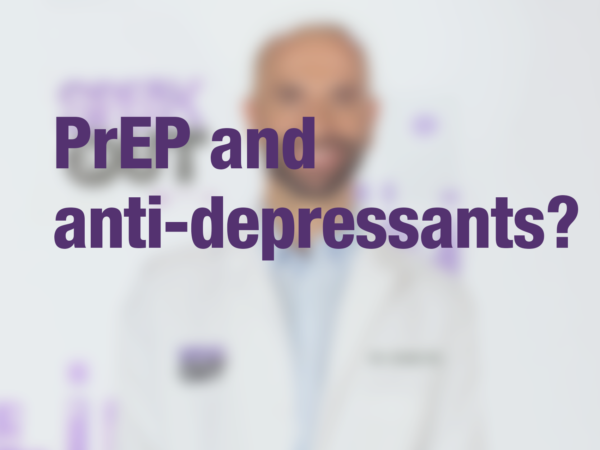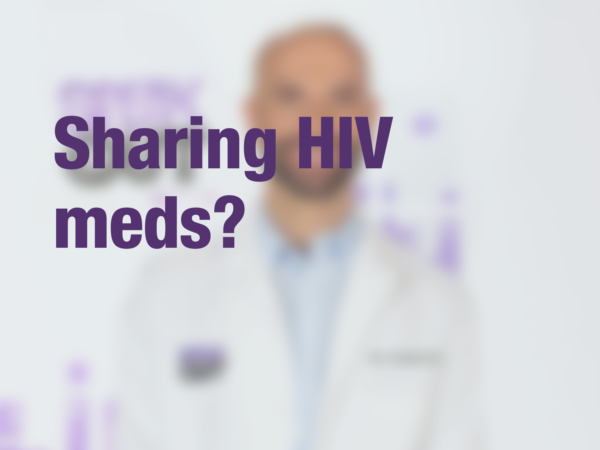Dr. David: My friend just found out he has HIV. Does that mean he’s going to get AIDS?
Dr. Demetre: You have some questions? We know HIV.
Dr. David: I’m a doctor. I’m trained for this.
Dr. Leandro: We’re gonna give you what you need.
Dr. David: Just because your friend has tested positive for HIV doesn’t necessarily mean that they’ll progress to AIDS. AIDS is a clinical diagnosis and it stands for acquired immunodeficiency syndrome. It’s basically when the HIV virus has weakened your immune system to the point where you basically can’t fight off infections that your body typically does. Your T-cell count has to be lower than 200 or you have to have an infection that’s called an opportunistic infection, that’s when the clinical diagnosis of AIDS is given. Now it’s important to recognize that when you get tested for HIV and you test positive, getting on medications is the biggest thing you can do to prevent yourself from progressing to that clinical diagnosis of AIDS. On the flip side, if you ever do get diagnosed with HIV and you find out that you have AIDS and you are in that clinical diagnosis category that you can actually take medications to get out of it.
Dr. David explains how treatment can help keep HIV in check.
Not everyone who has HIV progresses to AIDS. An individual diagnosed with HIV today who takes their antiretroviral (ARV) medication every day as prescribed can live a normal, healthy lifespan. They can also have children without HIV.
ARVs work to lower the viral load of an individual with HIV, often to levels that are undetectable by standard lab tests. In addition to improving health, getting and keeping a low viral load also prevents the spread of the virus.
There are many different ARVs available today that are highly effective at treating HIV, including some that are combined into a single pill. A healthcare provider can advise on the best treatment regimen.
Click here to find out more about HIV treatment.
#AskTheHIVDoc is a video series from Greater Than HIV featuring top HIV doctors providing answers to commonly-asked questions about HIV prevention, testing and treatment.
This information is shared for educational purposes only and should not be used as a substitute for professional medical advice. The views expressed are those of the featured medical professional and reflect information available to that professional at time of filming. Always consult a health care provider for any personal health decision.
While we make every effort to keep the medical information on our website updated, we cannot guarantee that the information reflects the most up-to-date research. Also, please note the views expressed by individuals who appear in Greater Than HIV videos and other content are their own and are not made on behalf of any groups/organizations/associations.


